The year of truth: EU Member States urged to combat deforestation
The EU is the world's largest "importer of deforestation," due to the huge volumes of unsustainably produced soy, timber, palm oil, and other raw materials that EU member states import. After many years of delay, the European Parliament and the European Council passed a law in December 2023 to address this problem: The EU Deforestation Regulation (EUDR). Both ENDS is part of a broad coalition of organizations that have been pushing for this European legislation. However, there is now a serious delay, and perhaps even postponement, of the law's implementation. Objections have been raised by a number of member states, who are sensitive to lobbying by certain business sectors and producer countries.
Countries such as Sweden and Hungary are lobbying hard against the law based on a poorly understood self-interest to protect their own forestry industry and agriculture, among other things. The Netherlands is one of the world's largest importers of soy and other 'deforestation raw materials'. It therefore has a heavy co-responsibility to make the EUDR a success, in close cooperation with tropical producer countries, companies and civil society.
Letter
Both ENDS and about 170 other nature conservation, environmental, and human rights organizations sent a fireletter to European Commission President Ursula von der Leyen, with the following plea:
"We urge you to protect the integrity of the EU democratic decision-making process and to ensure that the EU stands firm in pursuing the objectives set out in the EUDR. Political leadership, as reflected in the development of the Green Deal, shows long-term vision, which is needed for this global crisis. We trust that you will stand by the commitment you made to EU citizens and uphold the law that you and your Commission proposed - and that the Council and Parliament overwhelmingly approved - by ensuring its proper and swift implementation." Read the letter (pdf)
Businesses and governments invariably argue that a country like the Netherlands should not act alone in addressing this issue, in order to avoid an unfavorable competitive position. They argue that trade regulation should take place at the European level to promote a "level playing field."
Unacceptable
It is therefore unacceptable, and incomprehensible, that EU Member States are now threatening to stall progress in tackling deforestation through EU regulations. It also puts companies from Europe and tropical producer countries that operate seriously sustainably at a disadvantage compared to 'free riders': i.e. companies that, for example, save costs by paying little attention to the environment, climate and human rights.
Legitimate concerns have been raised that this European law could create market barriers for small producers (or "small holders") from tropical countries. This is a serious risk that needs to be addressed by the EU with trading partners through accompanying measures. At the same time, it should be noted that a number of governments from tropical countries label the EUDR as discriminatory, using the occasional argument of excluding small producers.
Many crocodile tears are shed over small producers, while governments at home often take inadequate action to improve their position. The focus of government policy, investment, and licensing is often on facilitating large companies.
Climate Goals
The UN Climate Panel IPCC (Intergovernmental Panel on Climate Change) emphasizes that it is not possible to meet the Paris climate goals without reversing deforestation. According to the IPCC, there is no scenario in which global warming can be limited to 2 degrees Celsius, let alone 1.5 degrees, without halting deforestation.
Role of Indigenous Peoples
It is also indicated that the role of indigenous peoples, custodians of more than 500 million hectares of forest, is indispensable in this regard. We previously wrote about this in a post.
Deforestation for the production of soy, wood, and extraction of oil, gas, coal, and other raw materials for the European market leads to large-scale land grabbing of farmers and indigenous communities and widespread violation of human rights.
Both ENDS has facilitated direct dialogue between EU policymakers in Brussels and with member states with indigenous delegations several times in recent years. Affected indigenous peoples appeal to policymakers to take responsibility, in their Call to Action.
Courage, Commitment, and Diligence
It is now time for the Netherlands and other EU member states to show courage, commitment, and diligence to make their contribution to combating deforestation.
Both ENDS has been a member of RSPO (Roundtable on Sustainable Palm Oil) since 2005, whose mission is to facilitate active cooperation and shared commitment in the value chain to stimulate demand and ensure sufficient supply of sustainable palm oil.
Read more about this subject
-
Dossier
Soy: trade in deforestation
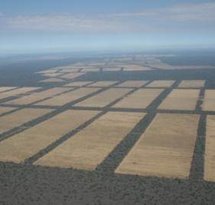
The rising demand for soy is having negative consequences for people and the environment in South America. Both ENDS reminds Dutch actors in the soy industry of their responsibilities and is working with partners on fair and sustainable alternatives.
-
Press release / 14 December 2020
Record submissions to public consultation urge EU to act on deforestation
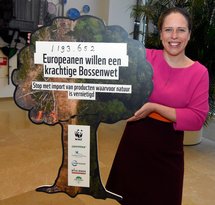
Brussels, Belgium - 14 December
A landmark 1,193,652 submissions to the EU's public consultation on deforestation were handed over to the European Commission this afternoon, all of which demanded a strong EU law to protect the world's forests and the rights of people who depend on them. The one million+ submissions have made this the largest public consultation on environmental issues in the history of the EU, and the second largest ever.
-
News / 15 October 2020
Land rights for Indigenous Peoples to protect their forests
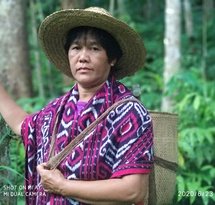
Institut Dayakologi works to preserve Indigenous Peoples' livelihoods and cultures in West Kalimantan. One of their central goals is to gain ancestral land rights for Indigenous communities. This is not only essential for the security of these communities, but also for the forests and ecosystems on which they depend for their livelihood, identity, culture and customs.
-
News / 11 September 2020
Have your say on the EU’s deforestation policy
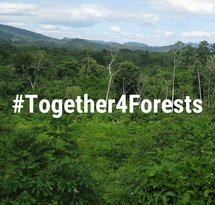
The world's forests are under threat. Remaining forests – havens of precious biodiversity and the lungs of the planet – are being cleared to make way for beef, soy, sugar and palm oil production, mining and other industrial activities, fuelled by increasing demand from Europe and other countries. But the good news is: you can help stop the destruction!
-
News / 29 June 2020
Global civil society pushes for mandatory environmental and human rights rules in the EU
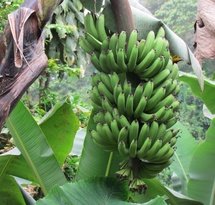
On 23 July 2020 a global network of NGOs working to strengthen corporate accountability for environmental destruction and human rights abuses, including Both ENDS, published an open letter to European Commission DG Justice Commissioner Reynders. The letter is a response to his recent commitment to propose legislation in 2021 on both corporate due diligence and directors’ duties as part of an initiative on sustainable corporate governance.
-
Event / 12 May 2019, 20:00 - 22:00
The European Election Debate: do we opt for the climate and a fair Europe? (in Dutch)
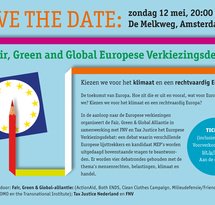
Europe's future. What does it look like and, more importantly, what kind of Europe do we want?
-
Press release / 11 September 2020
Press release: Golden opportunity to stop deforestation caused by EU consumption
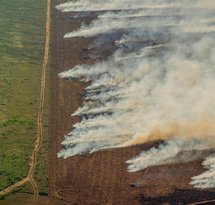
100+ NGOs launch #Together4Forests urging EU action
Fires raging in the Amazon are started deliberately to make way for large-scale industrial agriculture – and EU market demand for commodities produced on former-forest land is adding fuel to the fires. Globally, the EU is responsible for over 10% of forest destruction through its consumption of commodities like meat, dairy, soy for animal feed, palm oil, coffee and cacao.
-
News / 16 October 2020
Restoring forests, “free supermarkets” for Cameroon’s inhabitants
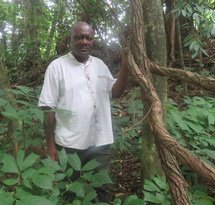
To Eric Wirsiy, director of CENDEP, the importance of forests is clear: not only do they function as a "free supermarket", providing foods and other things to local communities, but they are crucial to make landscapes resilient to climate change and other impacts.
-
Blog / 2 February 2022
On World Wetlands Day communities throughout the La Plata Basin are asking for support in their fight for their endangered wetland ecosystems
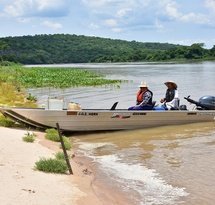 By Eva Schmitz
By Eva SchmitzThe new year has barely begun but already record high summer temperatures are being reported in parts of South America, especially Argentina, Paraguay and Southern Brazil. The latest heatwave, with temperatures of up to 45C, arrives on top of two years of severe drought which had a devastating effect on the entire region. It is a painful reminder of the immediacy of climate change and emblematic for what happens when vital ecosystems are not protected and for the catastrophic consequences as much on already endangered wildlife as on the local communities who depend on them for their livelihoods. One of the most affected areas are the regions wetlands – unique ecosystems, which are crucial ecological pressure points, vital for the regulation of river systems and huge carbon sinks. Their loss not only has ecological impacts but affects thousands of local communities which depend on their health for fishing, tourism and local agriculture. The threat to them by for example droughts and fires, can be directly linked to the large-scale production of soy, produced mainly for export. This in turn means responsibility for what is happening in the region needs to be acknowledged and shared by leaders around the world, and especially large importers such as the Netherlands.
-
Press release / 7 May 2019
Press release: European stakeholders call for immediate action in face of climate emergency
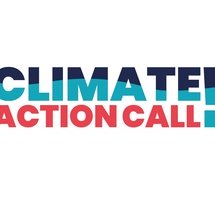
Brussels, 7 May 2019 - In an unprecedented Climate Action Call published today, a broad coalition is urging European leaders to take decisive action to respond to the climate emergency. Hundreds of European cities, regions, businesses, youth and faith groups and civil society organisations working on climate, human rights, litigation, mobilization, sports and health call upon leaders to profoundly alter the way we run our societies and economies to limit temperature rise to 1.5°C.
-
News / 21 January 2019
Launch of European campaign against unfair investment agreements
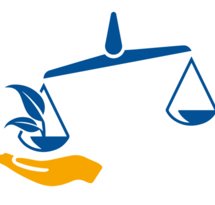
Today an alliance of more than 150 organisations, trade unions and social movements in countries across Europe is launching a joint programme against unfair trade and investment agreements, and especially against the controversial Investor-to-State-Dispute-Settlement (ISDS) mechanism. Under ISDS, investors can bring complaints against states whose social and environmental legislation pose a threat to their profits.
-
News / 4 April 2024
EU ECA fossil fuel phase-out tracker reveals EU Member States’ lagging commitment to Paris Agreement goals in export credit policies
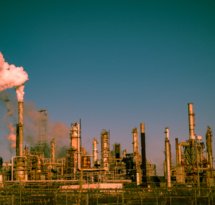
Our new report titled EU ECA fossil fuel phase-out tracker by Both ENDS, Counter Balance and Oil Change International sheds light on the concerning lack of harmony between EU Member States' export credit climate policies.
The report was updated on April 17th, following new responses by Member States on their respective policies.
-
Blog / 18 January 2019
Unambitious and uninspiring: the European Commission’s proposal for stepping-up action on global deforestation
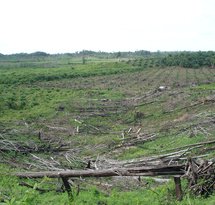
After five years of equivocation the European Commission has proposed a ‘roadmap’ for stepping-up EU action to address its contribution to global deforestation. Despite the escalating impact of EU trade in forest-risk commodities, regardless of repeated calls from the European Parliament for regulatory measures and contrary to the conclusions of the Commission’s own feasibility study in support of legislative intervention, the Commission has ruled-out out any new initiatives, let alone any legislative measures. The Commission’s solution to this complex problem: policy coherence.
-
Letter / 18 October 2022
Letter to the EU to call for strong EU regulation on deforestation-free products
140+ organisations call on the European Ministers, Commissioners and members of the European Parliament to adopt a strong EU regulation on deforestation-free products. As "trilogue negotiations" on this law begin, we ask you to support a law that lives up to the promises of the European Green Deal and the Sustainable Development Goals and upholds the EU's commitments on climate, biodiversity and human rights.
-
News / 3 February 2022
EU deforestation law can and must be stronger. Join #Together4Forests!
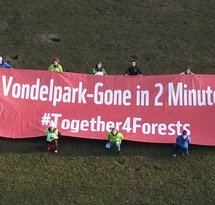
In the coming months, new EU regulation on deforestation-free products will be discussed in the Dutch and EU parliaments. The goal is that no more products related to deforestation in whatever way, will be imported into the EU . A very good and important initiative, but according to many civil society organisations, including Both ENDS, the bill that has now been drafted is far from sufficient.
-
News / 18 June 2019
Open letter from more than 340 organisations: EU must stop negotiating treaty with South American countries.
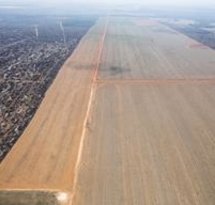
Today, more than 340 organisations from both South America and Europe, including Both ENDS, have sent a joint open letter to European Union leaders calling for the EU to cease negotiations on the EU-Mercosur Free Trade Agreement. The organisations and their constituencies are seriously concerned about increasing violations of indigenous human rights and damage to nature and the environment in Brazil.
-
News / 15 November 2018
All Eyes on the Amazon: the future of protecting forests in Brazil
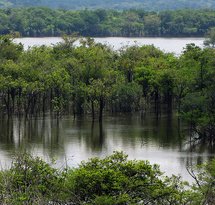
On Wednesday, November 14, Dutch Newspaper De Volkskrant published a joint op-ed by Both ENDS, Hivos, Greenpeace Netherlands and Witness about the deforestation in the Amazon region which is still going on rapidly, having disastrous consequences for the indigenous people who live in the area, for biodiversity and for the climate. The Netherlands is one of the largest buyers of Brazilian agricultural products such as soy and beef, and should ensure that deforestation, land grabbing and human rights violations do not occur in these production chains. Unfortunately, this is not at all the case yet.
-
News / 14 February 2024
Petition to protect the Saamaka people and the Amazon Forest
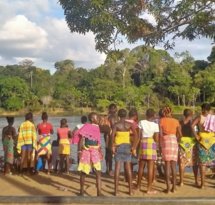
The Saamaka People, the Afro-descendant tribe of Suriname, have preserved close to 1.4 million hectares of the Amazon rainforest. They have for decades urged the government to recognise their ancestral territorial land rights.
-
Blog / 18 December 2017
Bali: The disappearance of a fishermen’s village
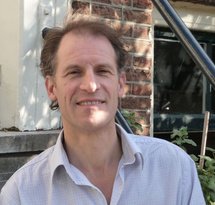
We pushed the canoe through the turf and climbing on board he suggested I take the helm while he would hoist the sail. Being aboard this fast sailing lightweight canoe, carried by the swell of the blue sea, brought back images so vividly described in Hemingway's book The old man and the sea. After leaving the coast, going further onto the sea we eventually changed track and went north. I learned from the fisherman that the daily catch of fish was very meagre. Fishermen had to leave home early morning, around 4 AM, and had to venture out far off the coast to find fish. When I spotted my hotel near the beach we set course for the coast. When we had reached the shore again, I paid the fisherman and we parted amicably, in good spirit.
-
Event / 16 November 2020, 18:30 - 19:30
Business as Usual: Dutch neo-colonialism in Brazil
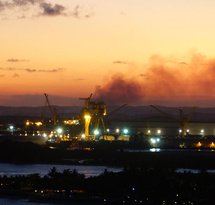
The Netherlands is a major business partner to Brazil and has not been deterred by the record of human rights' abuses by Bolsonaro's government, nor by the coup d'Etat against the president Dilma Rousseff in 2016. How do the Dutch economic ties with the Brazilian political and corporate elites affect the Brazilian population, in particular indigenous peoples, nature and the global climate?




